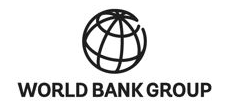Governments, refugees, and over 100 organizations and development agencies gathered at the World Bank's 2016 Fragility Forum discussed the need for: collaboration between humanitarian and development partners in building on the momentum of the Sustainable Development Goals (SDGs); giving refugees a voice; and addressing fragility, conflict and violence.
 3 March 2016: Governments, refugees, and over 100 organizations and development agencies gathered at the World Bank’s 2016 Fragility Forum discussed the need for: collaboration between humanitarian and development partners in building on the momentum of the Sustainable Development Goals (SDGs); giving refugees a voice; and addressing fragility, conflict and violence. The Forum took place on 1-3 March 2016 in Washington, DC, under the theme ‘Take Action for Peaceful and Inclusive Societies.’
3 March 2016: Governments, refugees, and over 100 organizations and development agencies gathered at the World Bank’s 2016 Fragility Forum discussed the need for: collaboration between humanitarian and development partners in building on the momentum of the Sustainable Development Goals (SDGs); giving refugees a voice; and addressing fragility, conflict and violence. The Forum took place on 1-3 March 2016 in Washington, DC, under the theme ‘Take Action for Peaceful and Inclusive Societies.’
Quoting the UN Secretary-General’s report, titled ‘One Humanity: Shared Responsibility,’ Jim Kim, President of the World Bank Group, emphasized the need to transcend the humanitarian-development divide “by working towards collective outcomes, based on comparative advantage.” Noting that official development assistance (ODA) is not sufficient to help communities and refugees, he called on participants to seek ways for development and humanitarian actors to integrate their efforts and come up with innovative financial tools. Kim identified partnerships as such a tool, giving the example of a partnership among the Islamic Development Bank Group, the UN, the World Bank, and the donor community to create a financing facility for Jordan, Lebanon, and other countries hosting Syrian refugees.
Jan Eliasson, UN Deputy Secretary-General, noted that civil conflicts almost tripled from 2007 to 2014. Calling to “finally and unequivocally give priority to preventing conflict,” he stressed the need to develop policies to prevent and address conflicts early and collectively.
Catherine Samba-Panza, Interim President of the Central African Republic, said “a fragile state means fragility for the entire world.” She noted the importance of including local players in partnerships with international bodies when reconstructing fragile states.
Deng Majok-gutatur Chol, Co-Founder of the Lost Boys and Girls of Sudan, explained that countries need a legal framework that allows refugees to contribute to the economy, instead of keeping them outside it. Princess Sarah Zeid of Jordan called for redesigning development interventions and financing at both national and global levels, for better risk management and wiser investment in resilience.
Ah Shindi, Minister of Planning in the Kurdistan Regional Government, Iraq, stressed the need for: development agencies to update their mandates to be able to respond better; creating a holistic system instead of having parallel systems on health, education, and other sectors; and investing in infrastructure to connect displaced youth with education and jobs.
Other issues raised by the participants included: the need for policy interventions to support private investment and complementary public investment; expanding risk-mitigations mechanisms and blended finance to meet private sector needs in fragile states; the need to help “gatekeepers” of the financial system keep illicit flows out; involving civil society as development partners, including to test out new approaches; scaling up cooperation and sharing of evidence-based data among institutions; and engaging mothers in countering extremism. [Forum Website] [World Bank President Speech] [UN Deputy Secretary-General Speech] [UN Press Release] [Summary Day 1] [Summary Day 2] [IISD RS Story on Report of Secretary-General]